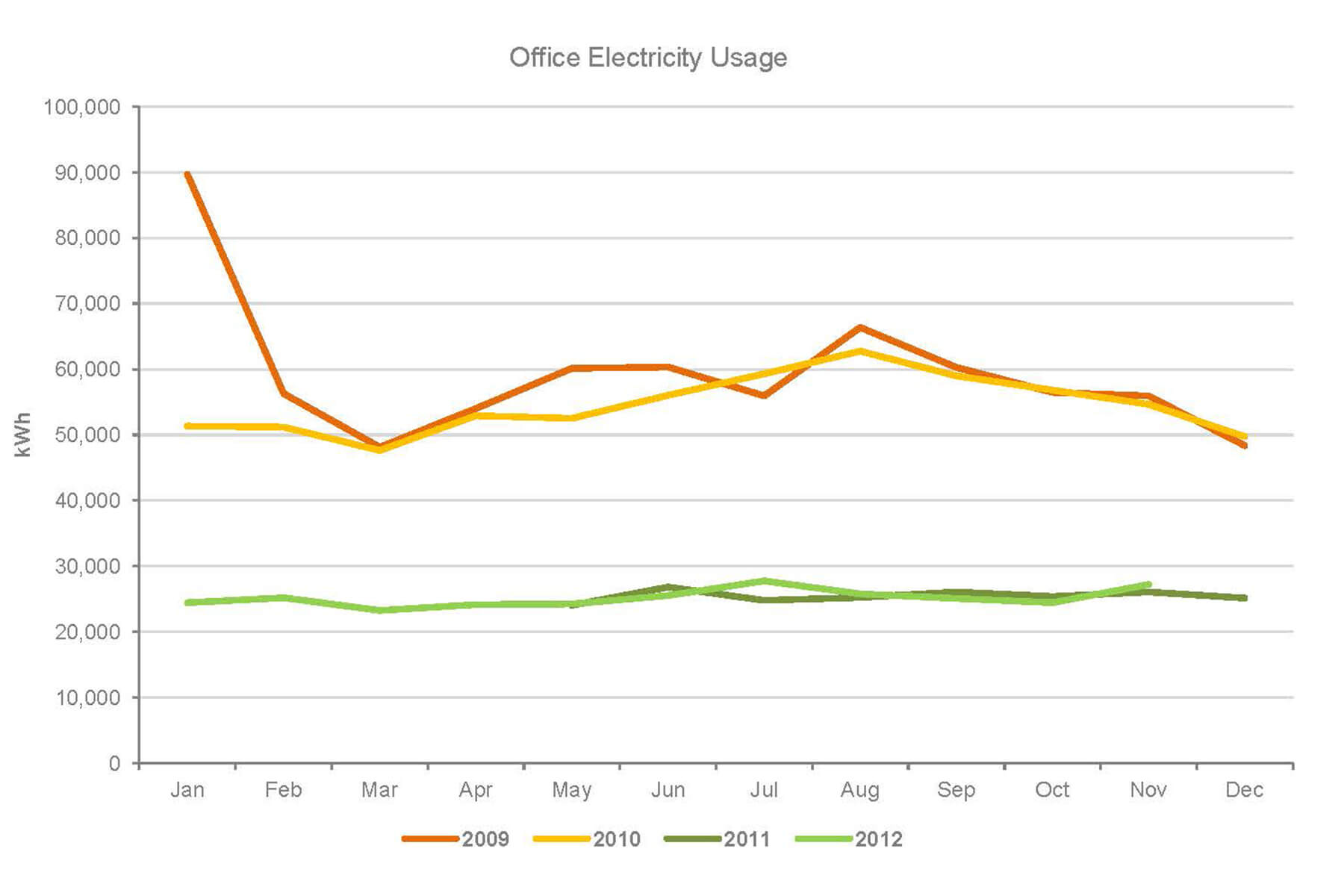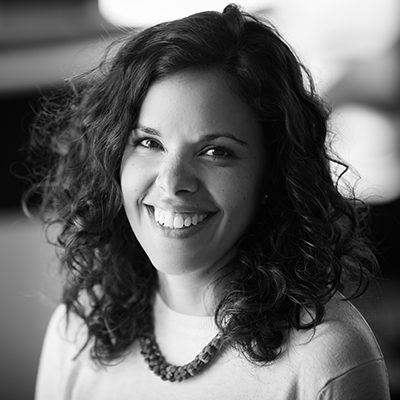
As part of joining the AIA 2030 Commitment, we have developed a Sustainable Action Plan for PAYETTE aimed at reducing the environmental impact of our projects and operations, as well as increasing staff literacy around the issues of building performance.
The design philosophy for our projects is one of rigorous exploration. They are tuned to the uniqueness of each client’s program and problem.
A key element to achieving the target of a 60% reduction in predicted energy usage for all of our projects is to provide a feedback loop during the design process and to capitalize on the knowledge acquired from past projects regarding energy-saving strategies. PAYETTE set several goals for all of our projects in an effort to minimize their environmental impact:
- All of our new construction and major renovation projects will have an early stage energy model to inform the development of the designs and allow us to understand which strategies have the largest impact on the overall buildings energy consumption.
- All of our projects will be designed to the minimum standard of being able to achieve at least LEED Silver certification. We feel this is an achievable target for all of our projects regardless of size and scope and will design to meet these standards, but certification will only be pursued at our clients’ request.
- We will conduct an integrated design charrette for all of our projects in order to work collaboratively to develop new approaches and solutions to solving the environmental problems of our projects. The results of these charrettes will be shared with the rest of the firm to share ideas across projects.
- For all our projects we will establish energy benchmarks and targets based on past projects and other databases to set aggressive, but achievable, targets for building performance.
- All projects will develop a Basis of Design of energy using systems to accurately record and comprehend the project’s needs.
In order to learn from completed projects, all projects will have some form of post occupancy evaluation, whether it be interviews, post-occupancy survey, and/or building performance monitoring. - Where appropriate, we will conduct shadow studies to understand the program and potential efficiencies, conduct site-specific analysis of the climate and context, perform life cycle cost analysis of energy efficiency measures, and evaluate the embodied energy and impact of construction materials.

In addition to the project goals, we have also committed to reduce the environmental impact of our own operations. This includes promoting the use of mass transportation, reducing the energy usage in our office and the consumption of our resources, and promoting the development of our staff in terms of sustainable practices. As such, PAYETTE promotes the use of video/web conferencing when possible, encourages car sharing and subsidizes the use of public transportation. We have an electronic meeting agenda and a double-sided printing policy to minimize our use of paper resources, which we track on a monthly basis. Additionally, our office is housed in a LEED Platinum building, and our electrical energy consumption is 55% lower than the electricity usage of our previous office space.
 Our staff are a critical resource of the firm, and staff development through bi-monthly educational session on building science, support of LEED accreditation, and participation in sustainability focused conferences enrich our practice. PAYETTE has active research projects on unresolved questions that repeatedly surface during the design process. These projects involve architects and designers at all levels, and are meant to improve the understanding of our practice and its impact on the environment. The outcome of these projects is published and presented in conferences around the country and continue to push the performance of our practice.
Our staff are a critical resource of the firm, and staff development through bi-monthly educational session on building science, support of LEED accreditation, and participation in sustainability focused conferences enrich our practice. PAYETTE has active research projects on unresolved questions that repeatedly surface during the design process. These projects involve architects and designers at all levels, and are meant to improve the understanding of our practice and its impact on the environment. The outcome of these projects is published and presented in conferences around the country and continue to push the performance of our practice.
To view PAYETTE’s sustainable energy usage plan click here.
Related:
Biocontainment + Sustainability
Energy Savings: Penn State Health Milton S. Hershey Medical Center, Children’s Hospital
Green Building Movement



